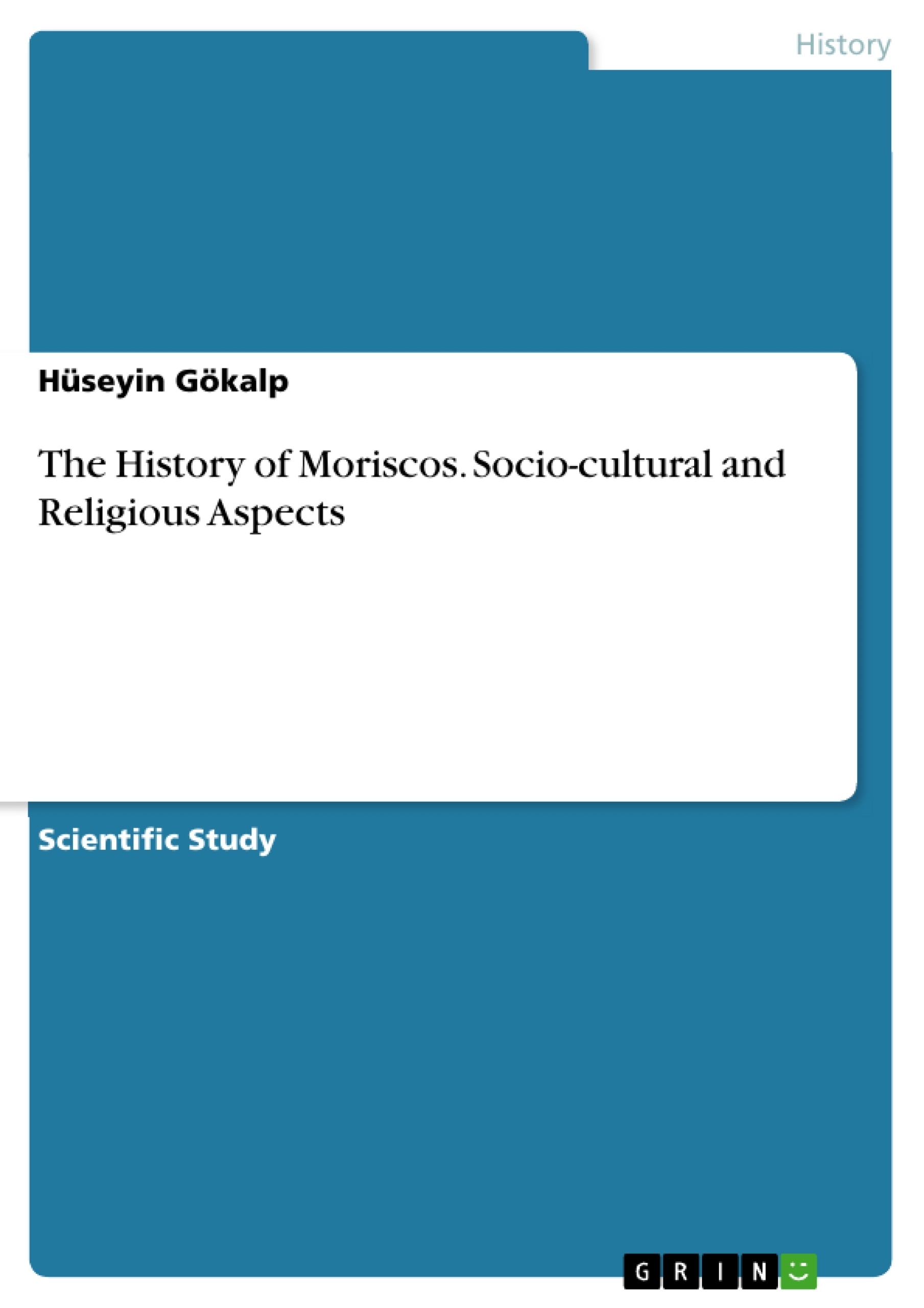Our study deals with a period in which the Andalusian Muslims began to descend rapidly from the summit. We intend to examine from socio-cultural and religious perspectives the history of the Moriscos, the Berber, Arab, Jewish or Spanish Muslims, who witnessed the fall of Gnrata after choosing Islam as a religion. Then, exposed to deportations and repressions, but had to stay in Andalusia for various reasons, officially accepted Christianity but have sought to transfer the Islamic faith they have hidden to the next generations.
If the 16th and 17th century Europe is well studied, it can be seen that the Spanish struggle against the Moriscos is not only a religious war. The Protestant war which was fought inside against the Germans that began to strengthen in the north, the rivalry with the British beyond the ocean, and the Ottoman threat in the Mediterranean and Europe, which could extend to their
vicinity at any time, pushed the Spaniards to cooperate with the Vatican, and they tried to establish Catholic Spanish union as a strong backbone against the threats outside.
A Morisco was seen as an Ottoman spy, a Protestant as a German spy and a Jewish as a British, Ottoman or French spy. Spaniards could not have a problem with just a muslim Morisco. The Christianization and expulsion of Muslims, who work more, who are more educated, who have technical staff and paid more taxes, took too long because of the strategy instabilities of the Spanish Kings on the way to the Great Spain.
Morisco is the name given by the Spaniards to a nation that either was converted by will or by force from Islam to Christianity, in Spain or Portugal at the time when the Iberian peninsula was occupied by the Spaniards. This word was also used for people who did not adopt Christianity but had to profess Christian faith, and who secretly and operatively continued to be a Muslim.
Similarly, in Spain, people who seemed to have accepted Christianity, but who maintained the belief in Judaism, were called "Marranos" or "Jews of Seferad".
With the Reconquista and the recapture of the peninsula in just the beginning of the 1500s, Muslims began to be forced to become Catholics. Those who did not accept were sentenced to death, while some lucky ones managed to escape to Morocco. During this difficult period, a number of people preferred to accept the Catholic faith and save their lives.
Table of Contents
- PREFACE
- ABBREVIATIONS
- INTRODUCTION
- SOURCES OF THE RESEARCH
- TERMINOLOGY
- CHAPTER ONE: HISTORY OF MORISCOS
- 1. ARRIVAL TO THE IBERIAN PENINSULA
- 2. ISLAMIZATION OF SPANIARDS
- 3. CHRISTIANIZATION OF MUSLIMS
- 4. THE EXPULSION
- CHAPTER TWO: SOCIO-CULTURAL AND RELIGIOUS LIFE IN THE LIGHT OF FETWAS...
- 1. THE FATWAS
- 1.1 The Fatwa of Oran
- 1.2 The Fatwa of Venşerîsî
- 1.3. The Fatwa of Egypt
- 2. SOCIAL AND RELIGIOUS LIFE
- 2.1 Social Life
- 2.2 RELIGIOUS LIFE
- 1. THE FATWAS
- CONCLUSION
- BIBLIOGRAPHY
Objectives and Key Themes
This study aims to analyze the history of Moriscos from a socio-cultural and religious perspective, examining their experiences before and after the Spanish conquest of the Iberian Peninsula, their cultural details, and their religious lives. It also seeks to understand the impact of Moriscos on the Spaniards.
- The history of Moriscos from the arrival of the Arabs to the Iberian Peninsula to the Expulsion of 1699.
- The socio-cultural and religious life of the Moriscos.
- The significance of fatwas in shaping Morisco identity.
- The complexities of religious conversion and its impact on social and cultural practices.
- The political and social factors that influenced the treatment of Moriscos.
Chapter Summaries
The first chapter explores the history of Moriscos, tracing their origins from the arrival of Arabs to the Iberian Peninsula to their forced conversion and eventual expulsion. This chapter examines the process of Islamization and Christianization in Spain, shedding light on the challenges and complexities faced by the Moriscos.
The second chapter delves into the socio-cultural and religious life of the Moriscos, analyzing their practices and beliefs in light of the influential fatwas. It examines the impact of these religious rulings on their social interactions, customs, and religious observances.
Keywords
Key words and focus topics of this study include Moriscos, Islamic conversion, Christianization, socio-cultural life, religious practices, fatwas, Iberian Peninsula, Spain, expulsion, and historical analysis.
Frequently Asked Questions
Who were the Moriscos?
Moriscos were Muslims (Berber, Arab, Jewish, or Spanish) in the Iberian Peninsula who were forced to convert to Christianity after the fall of Granada, but often secretly continued to practice Islam.
What was the "Reconquista" and its impact on Muslims?
The Reconquista was the recapture of the Iberian Peninsula by Christian Spanish forces. Following this, in the early 1500s, Muslims were forced to choose between conversion to Catholicism, death, or expulsion.
Why did the expulsion of Moriscos take so long?
The process was delayed due to the strategic instabilities of Spanish Kings and the fact that Moriscos were highly productive, educated, and contributed significantly to the economy through taxes.
What is the significance of fatwas in Morisco history?
Fatwas, such as those from Oran or Egypt, provided religious guidance on how to maintain Islamic faith while living under Christian rule and forced conversion, helping to shape Morisco identity.
How were Moriscos viewed by the Spanish state in the 16th century?
They were often viewed with suspicion, sometimes seen as potential Ottoman spies or internal threats to the Catholic Spanish union during a time of European religious wars and Ottoman threats.
- Quote paper
- Hüseyin Gökalp (Author), 2010, The History of Moriscos. Socio-cultural and Religious Aspects, Munich, GRIN Verlag, https://www.hausarbeiten.de/document/500199


